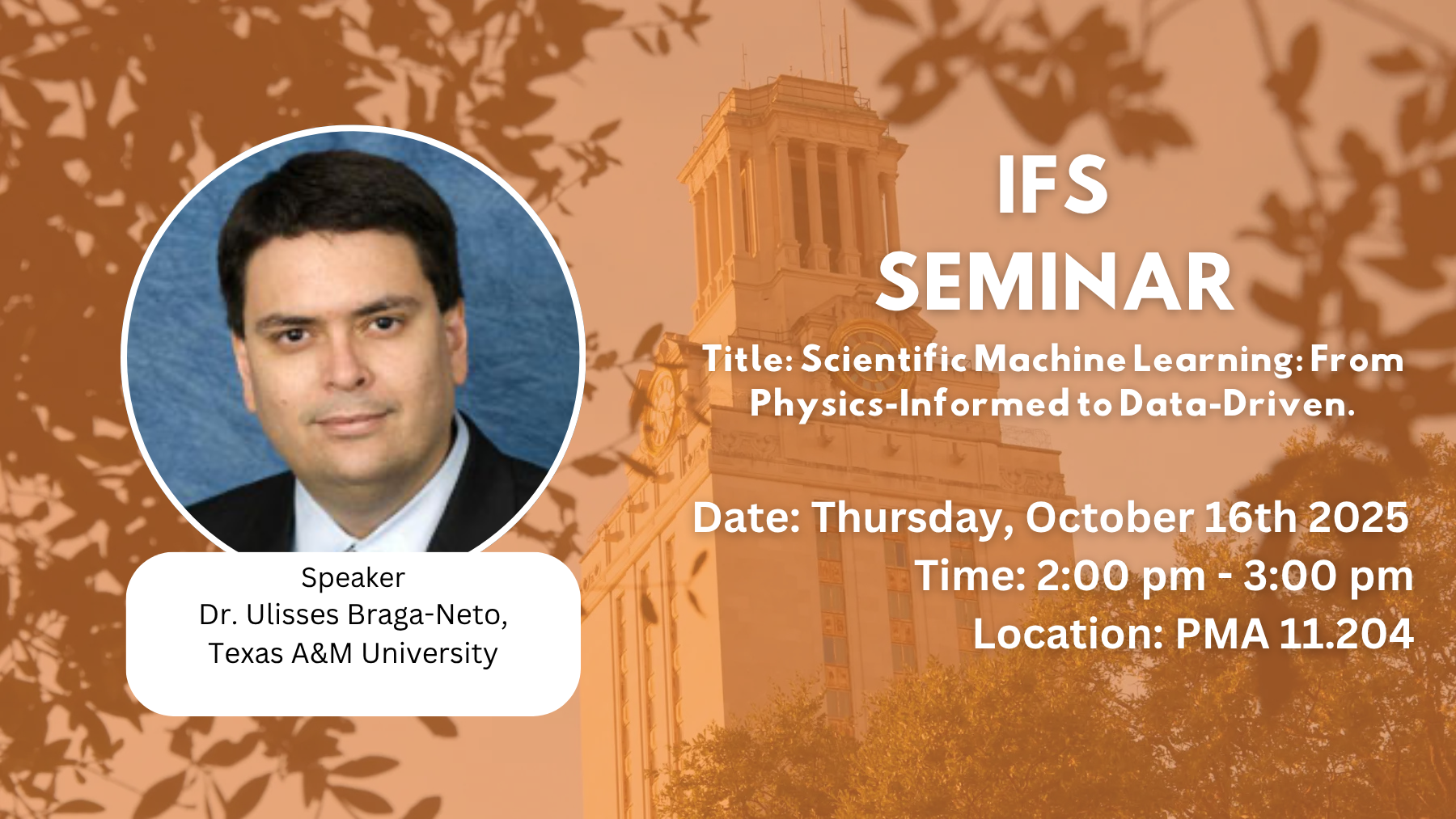IFS Seminar
Oct
16
2025

Oct
16
2025
Description
Abstract: Scientific machine learning (SciML) is a rapidly-expanding field that brings together scientific computation and machine learning. SciML became widely known initially through the success of physics-informed neural networks (PINN) and well as physics-informed Gaussian processes (PIGP). Both methods are collocation approaches that enforce the underlying differential equation at a grid of points. More recently, operator learning has emerged as a powerful SciML paradigm for parametric differential equation models. Unlike the previous approaches, operator learning is typically data-driven and does not require knowledge of the underlying differential equations. This is often encapsulated into the maxim "the physics is in the data". In this talk, we will review both the physics-informed and data-driven approaches, highlighting their advantages and disadvantages. We will present some of our own contributions in both areas. In particular, we will describe recent results obtained with a new operator learning architecture on data obtained from the Hasegawa-Wakatani model of plasma turbulence in tokamak fusion devices.
Brief Bio:
Ulisses Braga-Neto received his Ph.D. in Electrical and Computer Engineering from The Johns Hopkins University in 2002. He is currently a Professor in the Electrical and Computer Engineering Department at Texas A&M University. His research focuses on Machine Learning and Statistical Signal Processing. Dr. Braga-Neto is the founding Director of the Scientific Machine Learning Lab at the Texas A&M Institute of Data Science (TAMIDS). He has published two textbooks and around 170 peer-reviewed articles and book chapters. Dr. Braga-Neto received the NSF CAREER Award in 2009.
